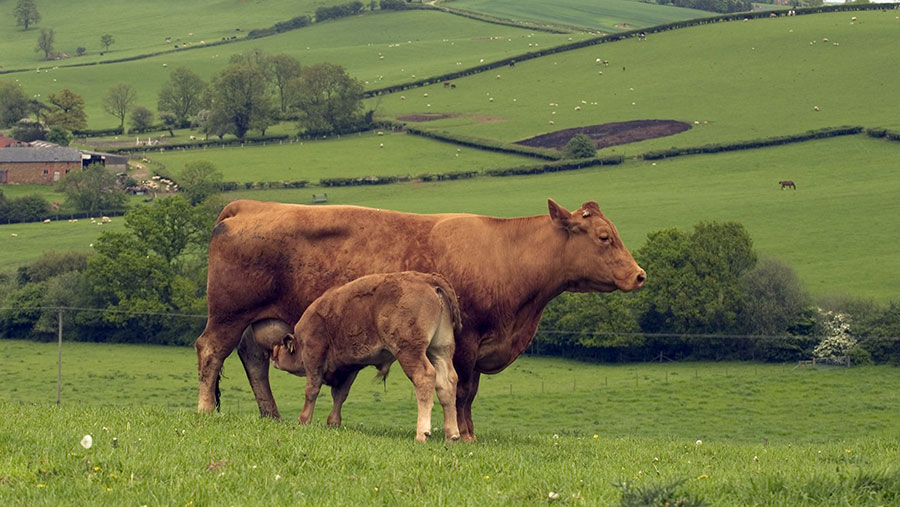Q&A: How do organic farm inspections work under lockdown?
 © Nigel R Barklie/Shutterstock
© Nigel R Barklie/Shutterstock Organic farmers audited by Soil Association Certification will continue to be inspected remotely until at least the end of September.
The organisation sets out tips and advice for farmers to help make the process run smoothly.
How are inspections set out?
Since late March, we have switched from physical visits to remote inspections.
These are carried out jointly by the farmer, who completes a self-assessment, and an inspector, who reviews the documentation via phone or video call. Farmers need to prepare to complete the self-assessment.
They must also send copies or photographs of requested documents ahead of the inspector’s call.
See also: Red Tractor Q&A: How are coronavirus lockdown assessments working?
What preparations are needed?
Producers are sent a list of documents to have available for their inspection five days before the phone call/online meeting. Farmers must also complete and submit a self-assessment form to return ahead of the inspection.
This includes last year’s inspection report to review and confirm whether there have been any changes to practices or enterprises.
If there have been changes, the farmer will need to alert the inspector before the formal call.
The self-assessment also includes an annual questionnaire to complete about the farm – for example, to provide updated livestock numbers and cropping details, which must also be sent ahead of any physical inspections.
Farmers will need to submit this electronically with documents to provide evidence, such as invoices for purchases or sales, animal health plans, crop management plans, veterinary and medical records.
A large percentage of on-farm documentation tends to be paper-based, so this can be a longer process, as the farmer will need to photocopy or take photographs of documents so they can be sent electronically.
However, the actual contact time with the inspector is much less than on a normal inspection day.
The inspector will hold a meeting online with the farmer, who may be required to provide more detail via further documents.
Where a Soil Association inspector is also carrying out a Red Tractor inspection, the licensee is required to do a livestream of their farm to validate compliance to the scheme’s standards.
This is not a Soil Association requirement, but it can be useful for the farmer to use videos and photos taken on the day to verify compliance, so this may be requested during the online meeting.
Which online platform is needed?
We prefer to use Skype for Business, as that is our in-house system, so we would recommend farmers familiarise themselves with this platform if possible. The more familiar both sides are with the technology, the smoother the process.
We are happy to use other platforms if Skype is not an option, and we have often used WhatsApp with our licensees.
We would recommend letting us know as early as possible if you need to use a different online platform.
What are the common issues?
Overall, inspections have gone smoothly for both farmer and inspector, and we have had lots of positive feedback from our licensees.
Issues can arise if farmers do not send all the requested documentation in time, so we would recommend checking the list of documents thoroughly and letting us know of any issues.
If an inspection cannot be completed, we can allow some extra time for farmers to send further documents after the virtual meeting takes place. If necessary, we will also do a follow-up physical inspection if full verification of compliance cannot be made.
What happens in area with poor internet coverage?
If, for any reason, the inspection can’t be completed – for example, because of a poor internet connection, we will ensure that a visit happens to complete it or to carry out a follow-up inspection when we get back to doing site visits on a regular basis.
When will physical inspections resume?
We have just started to do site visits again, but we are rolling this out slowly. Our current plan is to continue to carry out mostly remote inspections until the end of September and we will build up the amount of site visits as the Covid-19 risk decreases.
We are taking every necessary precaution for physical inspections to reduce the risk of spreading Covid-19, including maintaining social distance and carrying out individual risk assessments for each visit.
We will prioritise licensees where a remote inspection was not possible or was not completed, as well as prioritising follow-up inspections where full compliance could not be verified at the remote inspection.
To keep updated on changes to inspections and to access other online resources, please visit the Soils Association website.
Can I apply for new organic certification without a physical inspection?
Yes. As we roll out sit visits again, we are prioritising urgent processor application inspections as the EU organic regulation requires that a physical site inspection must take place before they can be certificated.
Farm application inspections are less urgent, as farmers can start the conversion period from the date of the arrival of the application, and as there is generally a two-year conversion period before anything can be sold as organic, there will be time to have one or more physical inspections.
This means it is still possible to apply to convert your farm to organic, and the window to apply for funding support to do so via Countryside Stewardship is open until 31 July for mid-tier applications.
What happens if non-compliance to organic standards arises?
Ensuring the integrity of organic and upholding its rigorous standards remain one of our core priorities.
If any uncertainty or concern over compliance with standards arises, a physical visit will be prioritised – especially if this relates to environmental or animal welfare concerns.
As in any type of annual renewal, in the event of non-compliance, the inspector will outline corrective actions that the farmer will need to complete in the required timescale and provide appropriate evidence where necessary.
